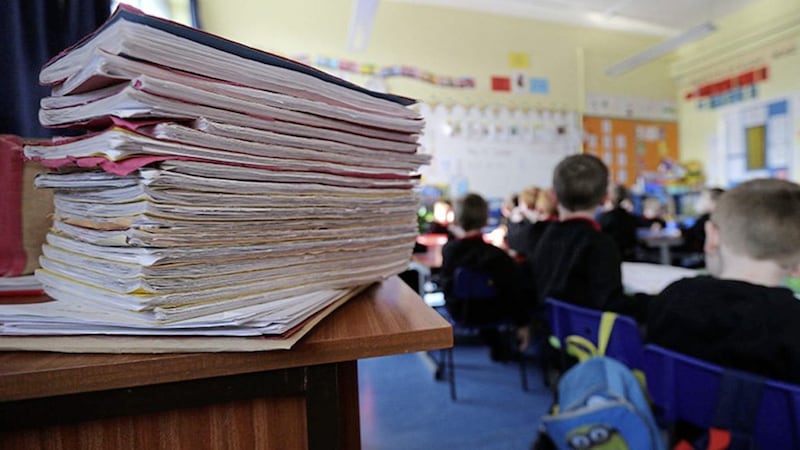ABOUT a decade ago, The Irish News featured a story outlining how school children who were young for year (ie born in May or June) were more likely to be referred to the then BELB Educational Psychology Service than children who were old for year (ie born in July or August).
The gap was particularly stark amongst young boys, and the Stranmillis lecturer responsible for conducting the research study, Dr John McMullen (then a student), suggested that “misidentification by professionals” lay behind the relative age effect on special needs referrals as opposed to any other underlying difference.
In other words, teachers were mistakenly identifying kids as potentially requiring special needs when in reality they were just younger than their peers and therefore less mature.
Around the same time, a report by the Institute of Fiscal Studies in Britain found that August-born children, the youngest in the English school system, were between 2.5 and 3.5 times “more likely to be regarded as below average by their teachers in reading, writing and maths.”
Since first reading that Irish News headline, I have personally been invested in this particular area, and over the years have conducted my own research illustrating how the age effect is particularly pertinent within our own education system.
Statistics from the Department of Education (NI) confirm that younger primary kids are on average likely to be behind their older classmates in the core curricular areas of English and maths by the end of primary school.
These children come from the same households as siblings born throughout the other months of the year, so other background factors cannot explain the differential in outcomes.
The peculiar nature of our schooling system means that relative age also has an impact upon the destination of children once leaving primary schools.
Children born in July, August and September have a greater likelihood to transfer to a grammar school than those born in April, May or June. The differential is nowhere near as stark as that between children entitled or not entitled to free school meals, but it nevertheless exists.
What tends to happen is that the necessity of differentiating tasks and activities for children in the modern classroom means that young for year children are more likely to be placed in weaker ability learning groups in their early primary schooling.
Once this happens, they are perceived as being less able, given tasks reflecting this, creating a self-fulfilling prophecy. Ultimately this leads to them disproportionately as a group achieving less than their peers.
All of which points to the need for professional awareness amongst school leaders and teachers, focused on highlighting that the problem is real and then outlining approaches and processes that can be introduced within school to help address potential underachievement as a consequence of relative age.
But raising awareness amongst parents is also a part of resolving the problem.
The education minister is currently holding a consultation on deferring school starting age. Our children start school very early when compared with their European counterparts, and many parents of the youngest children believe their kids simply are not ready due to concerns around emotional readiness, social skills and ability to last the longer school day - all in addition to the academic concerns.
Allowing some children to start formal schooling later than their peers sounds like the type of common sense that bureaucracies struggle to cope with because it involves an element of flexibility they are not wired to deal with.
The minister’s proposal would introduce flexibility for parents of the young for year cohort, allowing these children to defer for one year. These parents would make the decision prior to applying for pre-school.
There appears to be a particular case for children who were born premature and who are young for year due to the increased developmental risks they encounter.
Notably, research suggests that delaying school entry for premature children would only be impactful if they were also young for year and therefore not as a general rule for all children born prematurely.
The consultation also includes an option under consideration which would allow for automatic right of deferral for other categories of children prone to underachievement including Children Looked After and multiple births.
There is also an option involving a panel of experts determining whether or not, based on individual needs or exceptional circumstances, any other child could have their school start deferred for 12 months, though the cost-prohibitive potential of this latter proposal may render it a non-starter.
There are obvious risks with introducing flexibility into the system. Raising the profile of this issue elevates parental anxieties, and the system could be swamped with parents unnecessarily seeking to defer their child’s school starting date.
A child whose parent declines the option of pre-school and who opts for deferral could potentially be six years old or approaching six before starting school. Given that it is in the school setting that children requiring additional or special needs are identified, this would delay that process significantly.
Like everything else in education, deferring school starting age is no silver bullet, but if it helps reduce obstacles faced by children in what is increasingly recognized as an at risk group, then it should be welcomed as a step forward.








